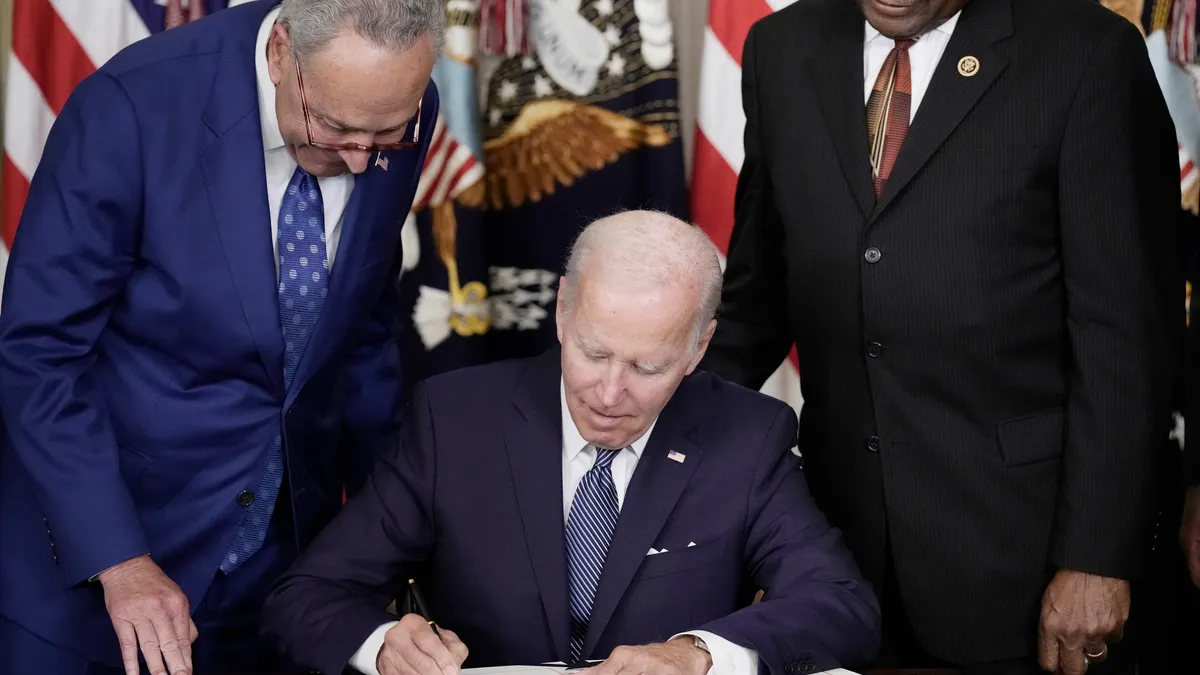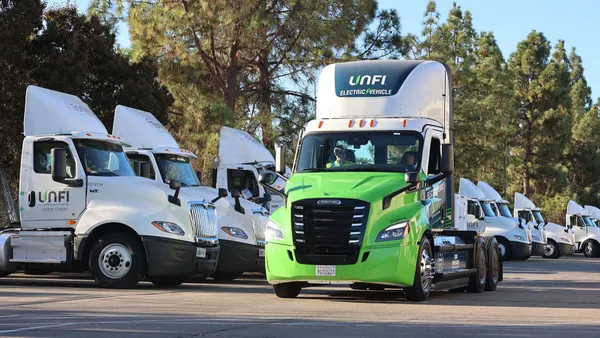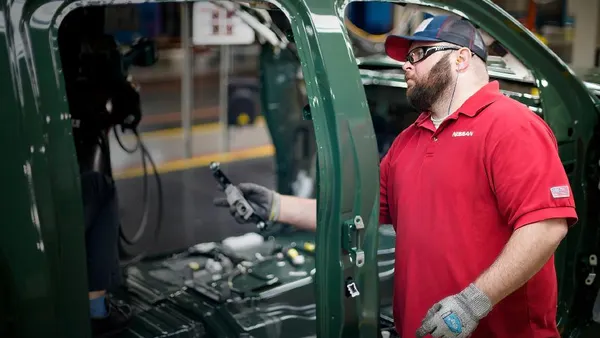President Joe Biden on Tuesday signed the Inflation Reduction Act, expansive legislation that, in part, encourages electric vehicle manufacturers to expand production and sourcing in North America.
The landmark climate and healthcare law contains up to $7,500 in tax credits for consumers who purchase EVs, though the financial incentive only applies when final assembly of the vehicles occurs in North America. Another requirement: The components used in EV batteries must not have been “extracted, processed, or recycled by a foreign entity of concern,” which includes China and Russia.
“American auto companies along with American labor are committing their treasure and their talent — billions of dollars in investment — to make electric vehicles and battery and electric charging stations all across America,” Biden said at a bill signing event.
But with an estimated 85% of rare earth metal processing taking place in China, it may be difficult for automakers to meet the sourcing needs for their vehicles to qualify for credits. EV companies must source at least 50% of their battery components by value in the United States or allied countries beginning in 2024, a percentage that increases to 80% after 2026. By 2029, 100% of battery manufacturing must be in North America.
“While we work to unlock supplies of critical minerals and ramp up battery production at home, we can’t currently meet the demand for these materials on our own,” John Bozzella, president and CEO of the Alliance for Automotive Innovation, wrote in an online post.
The U.S. has moved to ramp up production of critical minerals, announcing a $35 million investment earlier this year in a rare earth mining and processing company. The Inflation Reduction Act also gives the president more funding and authority to enforce the Defense Production Act, which Biden invoked in March to strengthen capacity of electric vehicle batteries.
Still, some note that the U.S. will need to do significantly more to ramp up supply of critical minerals. Bozzella called for a more gradual phase in of the tax credits, noting that, as written, “no vehicles will qualify for this purchase incentive over the next few years.”















